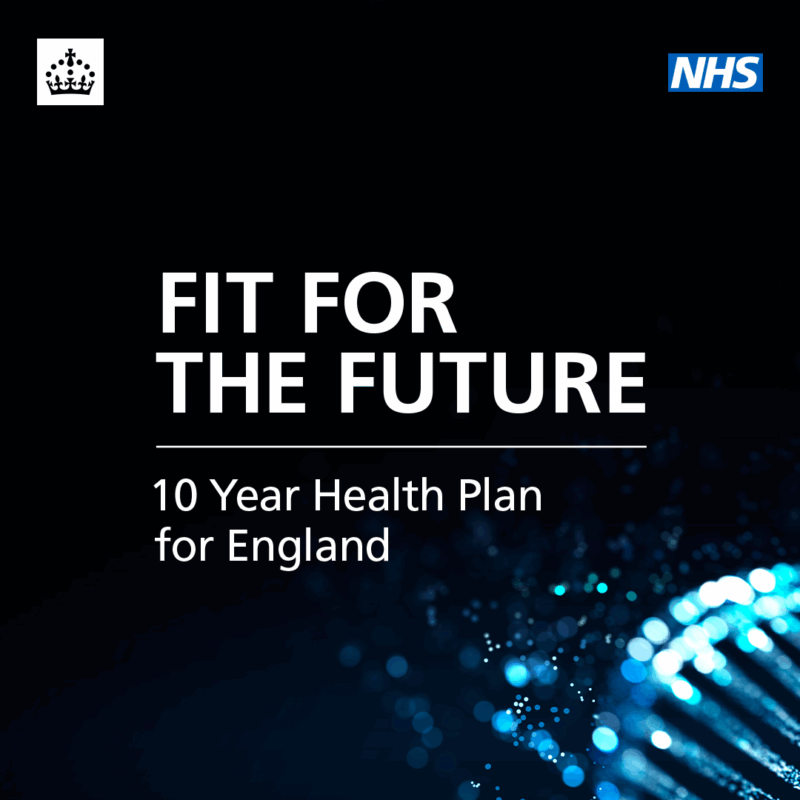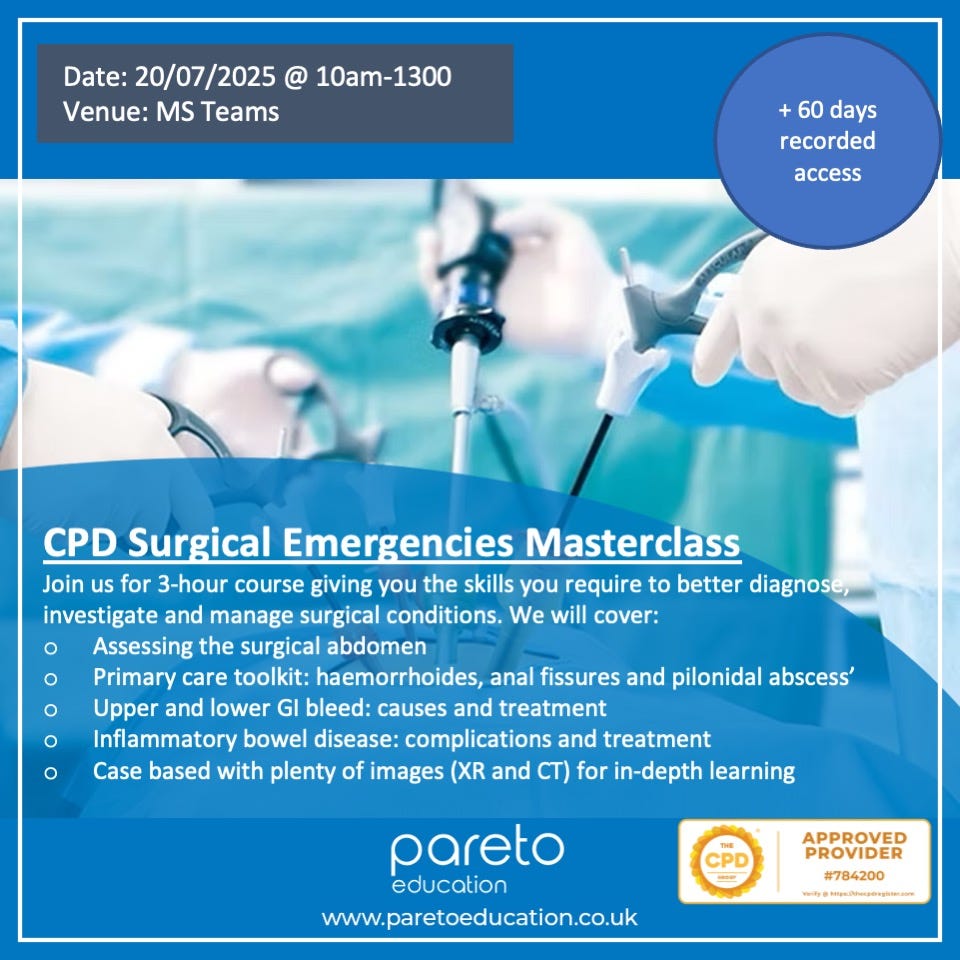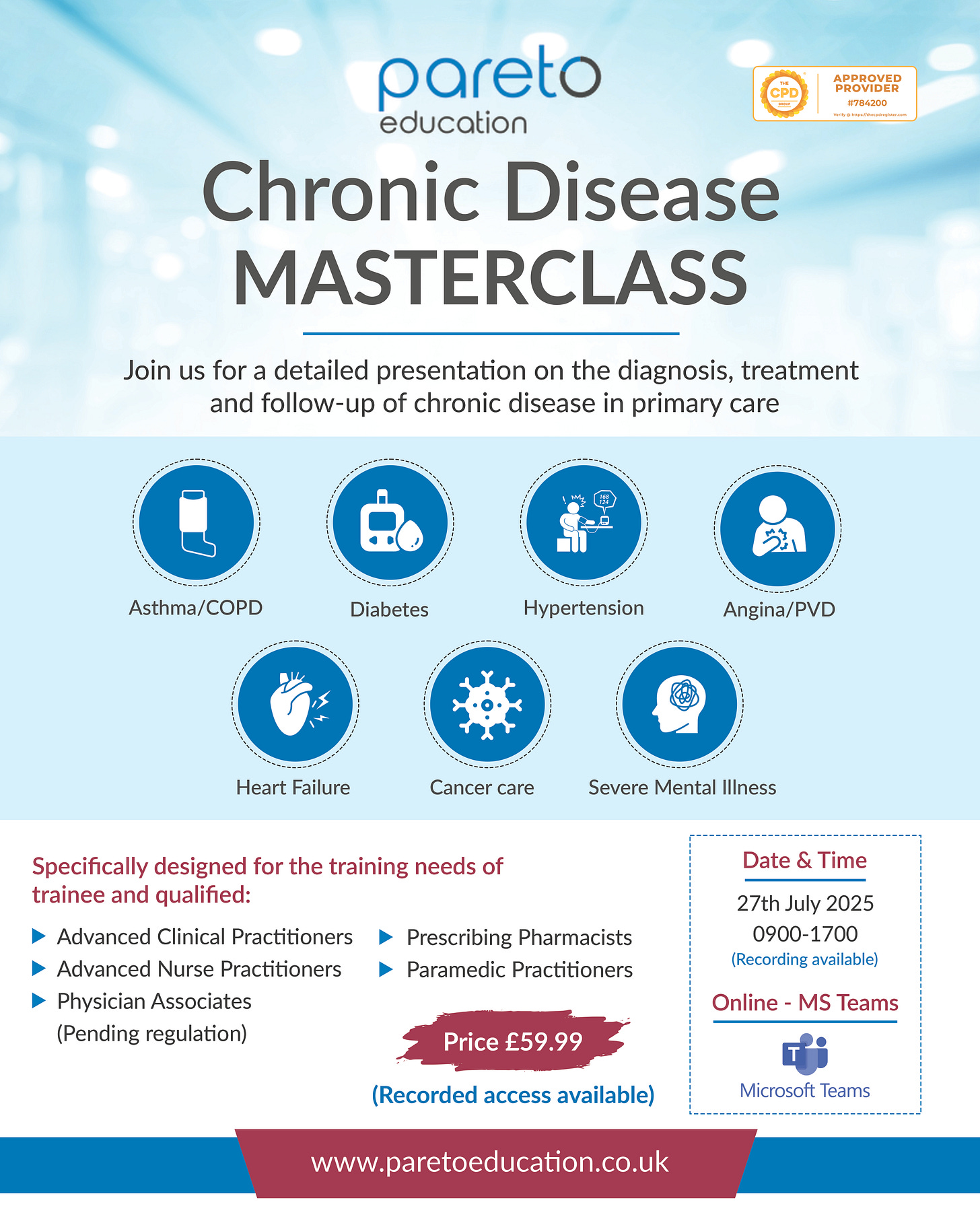Everything has been leading up to this moment. The election of the Labour government, the Darzi Report, and the calls from patients, staff, and unions have all led to this plan.
Perhaps it’s the moment we’ve all been waiting for, as job uncertainty is at its highest, recruitment is at its lowest, and a service that promises high-quality patient care is really struggling to deliver.
We’re going to keep this week’s issue short and focus purely on the direction we see things going for allied health professionals, including physician associates, ACPs, urgent care practitioners, paramedics, and pharmacists.
Broadly speaking, the NHS 10-year workforce plan covers the following themes:
From hospitals to communities: expansion of neighbourhood hubs and outpatient care in non-acute settings.
From analogue to digital: a revamped NHS app, unified patient records, AI in admin, telehealth, and remote diagnostics.
From treatment to prevention: proactive public health—screening, obesity programmes, vaccinations, and healthier environments.
To deliver on these ambitions, staffing is crucial. Recently, there have been calls from sections of the workforce about poor working conditions, recruitment challenges, and the influx of internationally registered practitioners to fill service gaps. The plan acknowledges that the required level of service cannot be fulfilled with the current workforce. It speaks of diversifying the workforce, training, and new operating models.
All of this is high-level, but the question on everyone’s lips is: What difference is this likely to make for those on the ground?
Here is our take:
The move to primary care will open up a wide variety of clinical roles requiring expert MDT input. The report explicitly states the need to enhance care for patients at home, particularly the elderly, which will see the expansion of roles in frailty and elderly care. We anticipated this, which is why we have focused our CPD training on elderly care. Check out our upcoming Frailty & Prescribing Masterclass.
Expansion of remote roles was highlighted, involving technological/AI-enabled roles and remote consulting to help integrate services. We expect significant recruitment in this area.
Refocusing on chronic disease: The report specifically mentions cardiovascular health and obesity as key concerns for the NHS. Weight loss services are currently difficult to access, and the recent expansion of weight management to primary care is an example of reducing barriers. We suspect that lipid clinics, obesity clinics, and respiratory clinics will predominantly shift to community settings to free up hospital resources, creating opportunities for specialist clinics and roles.
Reduced reliance on an international workforce: This has been discussed for some time, with doctors, nurses, and others calling on the government to prioritise domestic training and recruitment. This now appears to be the NHS’s direction.
As mentioned, many details are yet to be defined. The government has laid out its overarching plan in response to health and service considerations. Overall, the combination of refocusing healthcare on vulnerable groups, expanding primary prevention services, and reducing overseas recruitment spells positive news for clinicians in the UK.
Some professional groups, such as physician associates, whose recruitment has slowed, should have reason to be optimistic. With GMC regulation, the impending Leng report, and the landscape described above, more roles are likely to become available for physician associates.
As time goes on, further details will emerge. In the meantime, here are some important things you can continue to do:
For now we advise you to:
Ensure you are proactive in your job search - regularly check local and national job bulletins
Have multiple CVs tailored for primary and secondary jobs - this ensures you can apply quickly as jobs are often open for short periods
Look at your network - are you utilising and growing it to its full potential? Reach out to friends and colleagues
What makes you stand out? Is it your experience, your skills, your attitude, your adaptability- make sure this is advertised.
Finally, at Pareto Education, we have been following the news and healthcare landscape closely. Much of this plan is an extension of the “diagnosis” given by the Darzi Report published earlier. If you are interested in how you can upskill and prepare for this new landscape, be sure to watch our video discussing these key areas.
July.. July.. July.
July is a reset for most. Many of us schedule some annual leave, fly abroad and reflect on an intense year - especially if you work in the NHS.
However, July also brings a whole host of disease presentations. Hayfever, eczema, headaches, vasovagal syncope due to heat are just some of these presentations. Unfortunately, the doors of general practice and hospitals continue to be filled. In this glorious month, we bring you to courses which promise to fantastic opportunities for CPD.
CPD Surgical Emergencies Masterclass: Surgical Assessment Units are one of the busiest places in any hospital. Referrals come in day in day out of emergencies of a clear nature as well as suspicious pathology which requires specialist input. As they are places with HUGE MDT presence from doctors, ACPs, physician associates and others - running a masterclass on surgical emergencies was always high on people’s list. Join us on Sunday 20th July 2025 for a course covering a selection of vitally important subject matters. Remember if you can’t make the live event, you can watch the recording later. You can book here:
CPD Chronic Disease’ Masterclass: With an ageing population and increased complexity of diseases, the NHS has committed more focus to the prevention and management of Chronic Illness. This one day course is designed to provide a comprehensive review of the diagnosis, management, and multidisciplinary coordination of long-term conditions that significantly impact patient outcomes and healthcare resources. It is intended for junior and experienced MDT professionals including ACPs, ANPs, physician associates, doctors, pharmacists, and paramedics. As a bonus, we have mapped this course to the QoF (Quality Outcomes Framework) and have made reference to the systemOne and EMIS chronic disease templates. Once again, this course will be recorded in FULL so you can watch later. You can book here
Website: www.paretoeducation.co.uk
Instagram: www.instagram.com/pareto_ed
Twitter: www.twitter.com/pareto_ed
Youtube: https://bit.ly/3DPm23c
Email: info@paretoeducation.co.uk






